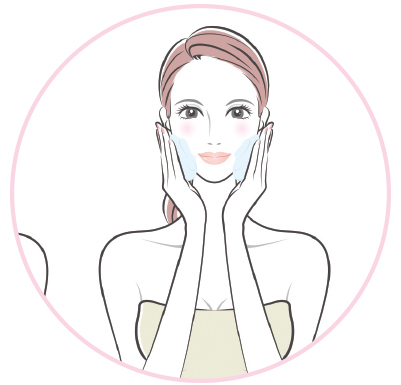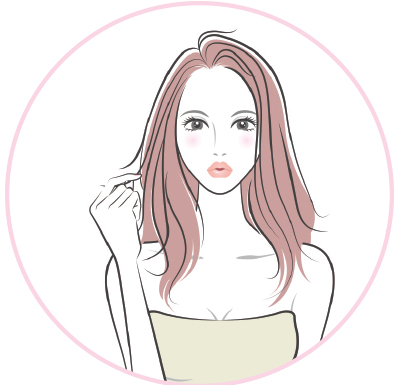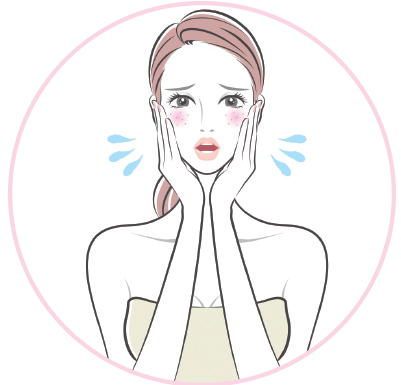Proper skin and hair care can be tricky—especially with all the myths, complicated sounding remedies and overpriced beauty products. But if you have got your basics in place, everything becomes easier. Neeharika Nene lists the 10 beauty questions we have all found ourselves frantically Googling for at some point or the other. What’s more, she has got experts to answer them for you as well!

- How to keep your skin from drying out?
“There is a difference between dry skin and dehydrated skin.
Dry skin is caused due to lack of oil, whereas dehydration is lack of water,” says Dr Chytra V Anand, Celebrity Cosmetic Dermatologist & Founder of Kosmoderma Skin & Hair Clinic. “Don’t take very hot showers; it will strip off natural oils from your body.” Use a moisturiser a few minutes after you’re done showering or washing your face—this is the time when it’ll work best. If you have oily skin, you will find a variety of oil-free moisturisers; pick the one that suits you best! Dr Anand recommends using an oil-based night cream for very dry skin.
- How to recognize if a certain product is harming your skin or hair?
“The skin shows an immediate allergic response to products which don’t suit you,” says Dr Sneha Samir Prabhudabholkar, National Creative Director–Skin & Nails, Lakmé Salon. “Itching, redness, rashes are the most common signs of this response. Apart from these, certain cosmetic products should only be bought under medical guidance as they may have components that harm the skin.” If you feel a stinging or burning sensation while using it, quit using the product immediately. This is not normal, and could be a sign that you are allergic to it. Continued use of such a product may cause severe harm to your skin. “The best way to understand if a product is suited for your hair or harming it is to see how it looks and feels when touched,” says Heena Dalvi, National Creative Director Hair, Lakmé Salon. “Simple things such as running your fingers through your hair will seem difficult. The hair looking dull and listless as opposed to a glossy silky look is also another indication of knowing if a product is harming your hair.”
- Is it true that eating certain fruits and vegetables can prevent pimples?
Yes! This is 100 per cent true. Green vegetables, fruits, fish and green tea are just some of the foods that help prevent acne. Drinking plenty of water helps too, as it washes away the impurities from your system. Include probiotics in your diet, they too may help reduce breakouts. However, the argument that fried food causes acne is a complete myth. Keep it away from your diet–but for the right reasons. Consuming too many dairy products is also known to cause acne.
- How should you care for coloured hair?
Coloured hair needs to be well conditioned at all times, in order to help it retain moisture. It requires special care. See to it that you use a shampoo and conditioner made specifically for coloured hair. This not only helps the colour last longer, but also makes sure your hair receives the nutrition required for it to stay healthy. Dr Anand recommends using a gentle shampoo and cool water to wash coloured hair. “Reduce the amount of heat you apply through hairdryers, curlers, straighteners and other sources,” she suggests. “Colour-treated hair needs special care because you are dealing with two aspects—colour protection and maintenance of healthy hair,” says Heena Dalvi. “The best way to address both these concerns in one go is to always use mild shampoos as it works best for the hair. Sulphate-free shampoos are recommended with colour protection,” she adds.
- Is it okay to shampoo your hair every day?
While a large number of brands boast of their shampoos being all natural, as a result of which it can be used every day, it still is not the best idea. “It is, after all, a chemical product,” says former beautician Shilpa Marathe. However, there are some conditions under which it is advisable to wash your hair daily. These include very oily hair, exercising often or sweating excessively, etc. For normal hair, washing your hair daily strips it of its natural oils, making it dry, brittle and unhealthy. Shampoo your hair every alternate day at most, but even twice a week is more than enough to keep your hair clean and healthy.
- How often should you wash your make-up brushes?
Dermatologists would recommend cleaning your brushes weekly, especially for foundation and concealer brushes. “Dirty brushes become more abrasive and dry as they become more caked with product and debris from your face,” points out Dr Anand. “This may become a breeding ground for bacteria and make your skin break out.” Remember that your brushes are delicate, and thus need to be treated gently and with utmost care. Use a brush cleansing liquid or a mild, gentle soap. Do the same for your beauty blenders, but replace them after three to four months of use.
- What is the most effective way to get rid of a suntan?
There are a variety of products that can help you get rid of a suntan. But it is best to go natural. You will be surprised to see how many ingredients, which are easily easily in your kitchen, can be used to get rid of a suntan. Tomato, yogurt, gram flour and turmeric are just a few of them. “A combination of raw milk, lemon juice and a pinch of turmeric proves to be very helpful and removes your tan easily,” Marathe says from personal experience. Coconut water is another easily available and simple way to get rid of an unwanted sun tan.
- When even sunscreen does not help, how do you prevent getting sun burnt?
“The best protection is achieved by applying sunscreen 15 to 30 minutes before exposure, followed by one re-application 15 to 30 minutes after exposure,” suggests Dr Anand. “Make sure you cover yourself with proper clothes, a hat and sunglasses.” Ironic as it sounds, increasing your Vitamin D intake may prevent sunburn. Rubbing coconut oil onto your skin is another effective remedy. Avoid stepping out between 11 am and 4 pm when the sun’s rays are harsh and direct.
- Is there a safe way to pop pimples?
Yes. It is possible to pop your pimples safely without the fear of scarring and infection! This, however, is not recommended. “I have tried popping pimples with the back of a safety pin before,” Marathe says. “Make sure that it is sterilized, without that the process is unsafe and harmful.” Also, make sure that your hands are clean. To avoid skin irritation and scarring, use a gentle cleanser after you have finished. It is always a better option to visit your dermatologist if you want to get rid of your pimples. They know best how to get them down without the risk of scarring and inflammation.
- What are some ways to make your make-up last through the day?
Long hours, when put together with heat and humidity, can melt away your make-up in no time. If you want your make-up to last longer, good skincare is a must. Use a cleanser before you start applying make-up. Another product you should not skip on is primer. This locks in your skincare and helps your make-up last longer. Choose the right foundation, and as far as possible, apply it with a brush instead of your fingers. And of course, if you use a setting spray or a powder, there is nothing like it.
Link Copied











